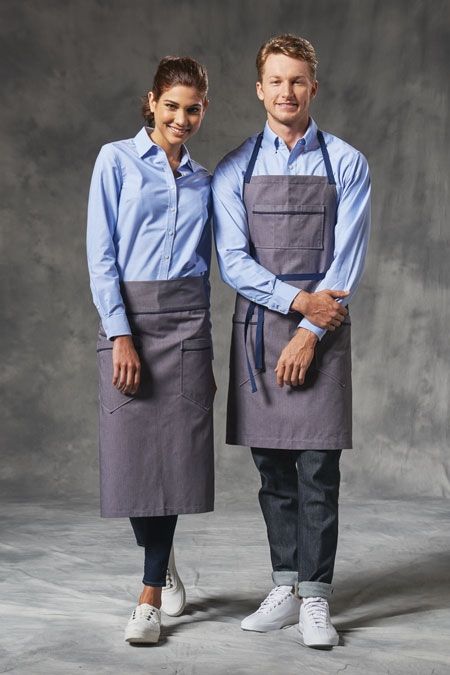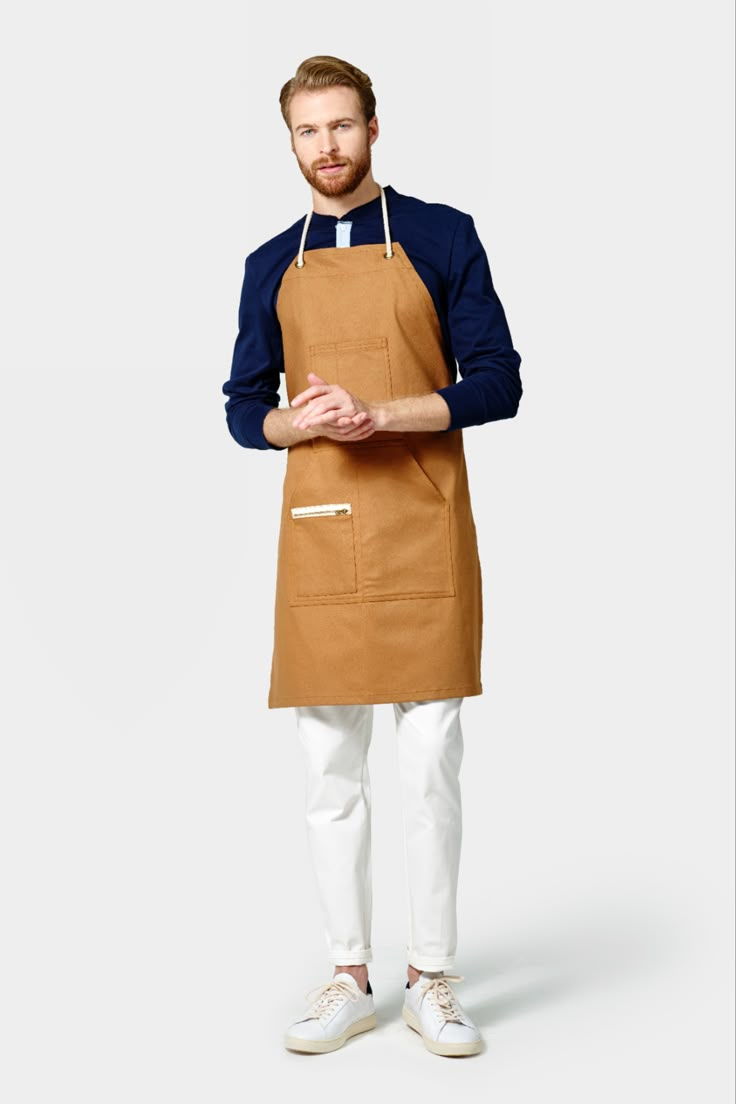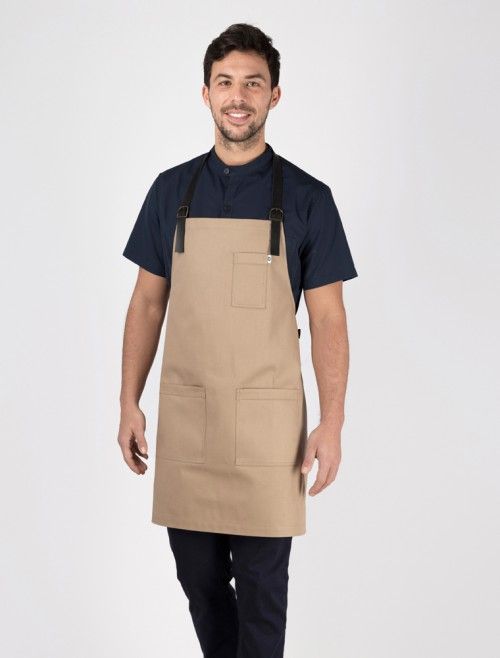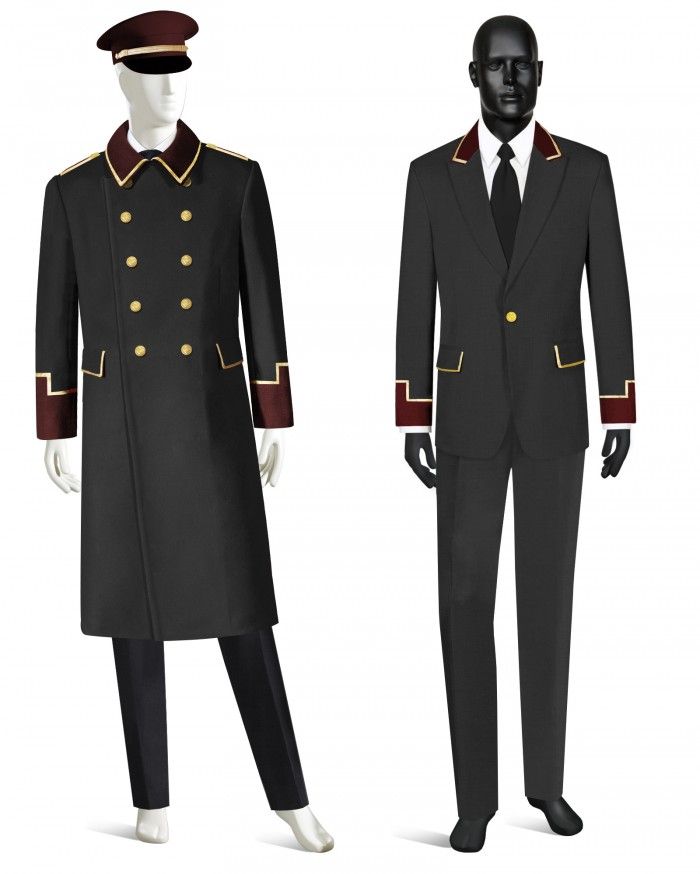As Saudi Arabia's hospitality sector experiences unprecedented growth under Vision 2030, hotel chains operating multiple properties across the Kingdom face a critical branding challenge: how to deliver consistent, recognizable experiences that reinforce brand identity across diverse locations. Staff uniforms have emerged as a powerful strategic tool in creating this cohesive brand experience, serving as visual ambassadors that communicate brand values, positioning, and promises to guests regardless of which property they visit.
Uniforms as Visual Brand Continuity Elements
In the multi-property hospitality context, staff uniforms function as crucial visual connectors that immediately signal brand affiliation and establish expectations for the guest experience.
Brand Recognition Through Visual Consistency
Well-designed uniform programs create immediate recognition benefits:
- Inter-Property Recognition: Guests instantly recognize the brand environment when moving between properties
- Brand Recall Enhancement: Distinctive uniform elements improve memorability and future booking likelihood
- Market Differentiation: Signature uniform features distinguish the brand from competitors
- Brand Promise Signaling: Design elements that communicate specific service commitments
- Legacy Reinforcement: Visual connections to established brand heritage and history

Staff at three different properties of a luxury Saudi hotel chain demonstrating consistent uniform presentation
Experiential Continuity through Uniform Design
For hotel groups operating diverse property types, uniform design frameworks support consistent experience delivery while accommodating property-specific requirements:
- Design System Approach: Unified design principles applied across different property categories
- Common Design Elements: Signature pieces or styling details that appear consistently throughout the brand
- Tiered Implementation: Graduated uniform programs reflecting different service levels while maintaining brand connection
- Local Adaptation Framework: Guidelines for appropriate regional customization within brand standards
- Cross-Property Recognition: Staff identification that translates across all brand properties
Strategic Brand Alignment Through Uniform Programs
Communicating Brand Positioning
Uniform design elements instantly communicate the hotel's market positioning and brand promise:
- Luxury Positioning: High-end tailoring, premium materials, and sophisticated styling details
- Business-Focused Properties: Professional, efficient designs conveying competence and reliability
- Resort/Leisure Brands: Approachable, relaxed elements while maintaining professionalism
- Extended-Stay Concepts: Comfortable, residential-inspired approaches creating homelike atmosphere
- Heritage Properties: Design elements reflecting historical context and traditional values
Case Study: Uniform-Driven Brand Consistency for a Saudi Luxury Hotel Group
A Saudi luxury hotel group operating seven properties across the Kingdom implemented a comprehensive uniform program designed to create immediate brand recognition across locations. The system incorporated signature elements (distinctive neckwear, customized buttons, and proprietary pattern detailing) that appeared consistently across all properties while allowing location-specific adaptations for regional context. Guest feedback surveys demonstrated the program's effectiveness: brand recognition increased by 42%, with 78% of returning guests reporting that uniform consistency helped them feel "immediately at home" when visiting different properties within the portfolio. Most significantly, the company reported that cross-property bookings increased by 23% following implementation, with guests specifically mentioning service consistency as a primary motivation for staying within the brand.
Brand Values Visualization
Strategic uniform design translates abstract brand values into visible expressions:
- Attention to Detail: Thoughtful finishing details reflect the brand's commitment to quality
- Cultural Respect: Appropriate incorporation of Saudi heritage elements demonstrating cultural sensitivity
- Innovation Focus: Contemporary design elements and technical fabrics signaling forward-thinking approach
- Sustainability Commitment: Eco-friendly materials and production methods reflecting environmental values
- Inclusivity Principles: Uniform systems accommodating diverse staff needs while maintaining brand unity
Unified Service Communication Through Uniform Systems
Role Recognition and Service Clarity
Effective uniform programs facilitate service delivery through clear visual communication:
- Department Identification: Consistent color-coding or styling across properties identifying function
- Hierarchy Signifiers: Subtle indicators of leadership roles maintaining brand aesthetics
- Specialist Designation: Visual identification of specialized service providers (concierge, sommelier, etc.)
- Approachability Signals: Design elements encouraging appropriate guest interaction
- Service Standards Reinforcement: Presentation requirements supporting consistent service delivery

Coordinated uniform system visually distinguishing staff roles while maintaining brand consistency
Guest Journey Consistency
Uniform programs support consistent experience throughout the guest journey:
- Arrival Experience: Front-facing roles with highly recognizable brand elements for first impressions
- Service Transition Continuity: Visual connections between different departments encountered during stay
- Brand Touchpoint Coordination: Uniform alignment with other brand elements (interiors, materials, collateral)
- Multi-Property Transfer Experience: Recognition patterns supporting guests using multiple facilities
- Memory Formation Support: Distinctive elements creating lasting brand associations after departure
Implementation Challenges in the Saudi Market
Regional Adaptation Considerations
Implementing chain-wide uniform programs across Saudi Arabia's diverse regions requires strategic adaptation:
- Climate Variations: Adapting materials and construction while maintaining visual consistency
- Regional Cultural Nuances: Appropriate modifications respecting local expectations
- Property-Specific Requirements: Accommodating different facility types and service models
- Seasonal Considerations: Adjustment for dramatic seasonal changes in regions like Tabuk or Abha
- Geographic Positioning: Urban vs. resort vs. religious destination property differences
Supply Chain and Implementation Logistics
Operational challenges in maintaining brand consistency:
- Multi-Property Coordination: Synchronized implementation across geographically dispersed locations
- Replacement Cycle Management: Ensuring consistent appearance despite varying wear patterns
- Quality Control Systems: Maintaining consistent standards across multiple properties
- Staff Training Integration: Proper uniform presentation as part of brand standards training
- Centralized vs. Decentralized Management: Finding optimal program control balance
Expert Insight: Implementing Multi-Property Uniform Programs
"The most successful hotel chains in Saudi Arabia treat uniform programs as strategic brand assets rather than operational expenses. By establishing clear design systems with both mandatory and flexible elements, these organizations ensure immediate brand recognition while respecting the unique character of each property. The key is creating a framework that allows appropriate adaptation without compromising the core visual identity that drives brand recognition."
- Fatima Al-Dosari, Hospitality Brand Consultant with experience implementing uniform programs for major hotel groups across the Kingdom
Balancing Brand Consistency with Saudi Cultural Context
National Identity Integration
Successful chain-wide uniform programs respect and incorporate Saudi heritage:
- Cultural Element Incorporation: Thoughtful integration of Saudi design motifs and patterns
- Heritage Brand Connection: Visual links between Saudi traditions and contemporary hospitality
- Modesty Considerations: Designs respecting cultural expectations while maintaining brand standards
- Regional Pride Expression: Property-specific elements celebrating local cultural identity
- International Brand Adaptation: Appropriate modification of global brand standards for Saudi context

Thoughtful incorporation of traditional Saudi design elements within a consistent brand framework
Religious and Cultural Sensitivity
Brand-wide accommodation of important cultural considerations:
- Prayer Time Accommodation: Designs facilitating religious observance with dignity
- Gender-Specific Adaptations: Appropriate modifications while maintaining brand unity
- Holy Site Proximity Considerations: Special requirements for properties near religious locations
- Ramadan-Specific Elements: Seasonal adaptations honoring important religious periods
- International Staff Integration: Systems supporting diverse workforce within cultural context
The Future of Chain-Wide Uniform Programs in Saudi Hospitality
As Saudi Arabia's hospitality sector continues expanding under Vision 2030, several emerging trends will shape chain-wide uniform implementation:
- Technology Integration: Smart textiles and digital elements enhancing brand recognition and functionality
- Sustainability Leadership: Eco-conscious uniform systems reflecting growing environmental priorities
- Cultural Fusion Innovation: Sophisticated integration of Saudi heritage with contemporary global design
- Inclusive Design Approaches: Expanded accommodation of diverse body types, religious requirements, and personal needs
- Giga-Project Coordination: Specialized uniform systems for massive multi-property developments like NEOM and Red Sea Project
Conclusion
In Saudi Arabia's rapidly evolving hospitality landscape, staff uniforms serve as powerful tools for creating consistent, recognizable brand experiences across multiple properties. By establishing thoughtful design systems that balance brand unity with appropriate regional adaptation, hotel chains can strengthen brand recognition, enhance guest comfort across properties, and create cohesive service experiences that support multi-property guest retention.
The most successful Saudi hotel groups recognize that uniform programs represent more than simply clothing staff—they are strategic investments in brand equity, visual storytelling opportunities, and powerful vehicles for communicating brand values and promises to guests. As the Kingdom's hospitality sector continues expanding to meet Vision 2030 goals, these carefully orchestrated uniform programs will play an increasingly important role in creating memorable, consistent guest experiences that drive brand loyalty across growing property portfolios.
